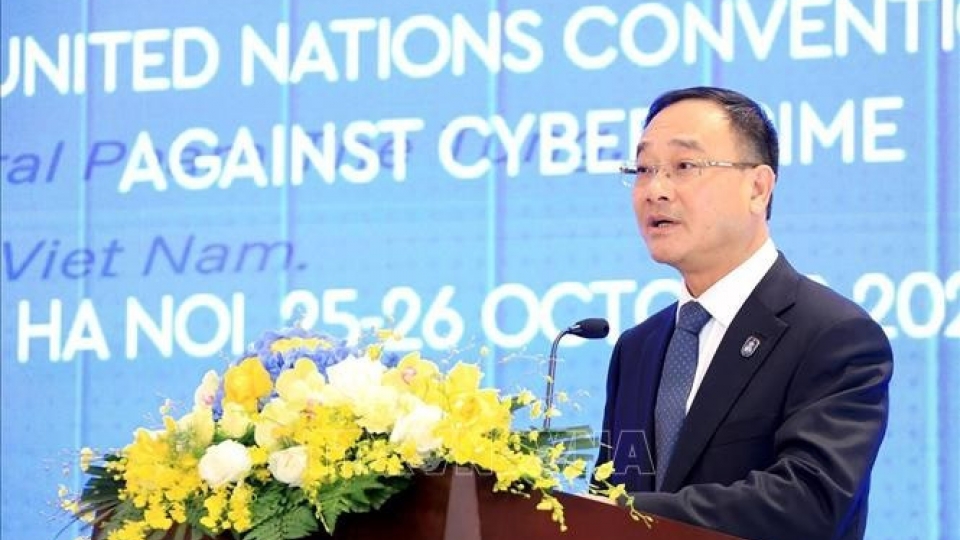Hanoi Convention to provide solid legal framework to tackle online fraud
The United Nations Convention against Cybercrime (Hanoi Convention) is expected to provide a robust legal framework that enables countries to cooperate more effectively in preventing and prosecuting human trafficking and online fraud while safeguarding the rights of individuals, especially migrants.

In an interview with the Vietnam News Agency on the occasion of Vietnam’s hosting of the signing ceremony for the Hanoi Convention, Kendra Rinas, Chief of Mission of the International Organisation for Migration (IOM) in Vietnam, said cybercrime is increasingly being used to facilitate human trafficking, online scams, and the exploitation of migrants.
"The Hanoi Convention is a powerful, legally binding instrument that strengthens our collective defences against cybercrime," she said, elaborating that it gives states a vital tool to prevent and combat online crimes while protecting individuals in the digital space.
According to the IOM official, human trafficking now operates through closed, organised networks, making detection and disruption far more challenging. Technology has become a powerful tool for traffickers, who now recruit victims online using sophisticated luring tactics that capitalise on people’s desire for better jobs and higher incomes.
This is particularly linked to trafficking for forced criminality in cyber scam compounds in Southeast Asia – an issue that persists daily, despite assumptions that it has subsided.
The IOM’s Regional Situation Report on Trafficking in Persons into Forced Criminality in Online Scamming Centres shows that the number of victims forced into criminal activity and supported by IOM in Southeast Asia has more than tripled, from 296 in 2022 to 1,093 so far in 2025. Half of the victims were high school graduates, and the rest were university graduates, many being young, educated individuals deceived into conducting cyber scams for organised criminal networks. Rinas warned that traffickers are also shifting their focus toward vulnerable populations with rising cases of organ trafficking and even trafficking of fetuses.
Traffickers are adapting fast, operating across borders and bypassing traditional face-to-face interactions, she noted, stressing that public awareness remains key to combating these evolving tactics.
To address these challenges, IOM Vietnam applies the “4Ps approach”—Prevention, Protection, Prosecution, and Partnership. Prevention efforts include raising awareness of trafficking risks and supporting the development of skills and job opportunities to reduce irregular migration pressures.
Under its protection mandate, IOM provides assistance to vulnerable people and reintegration support to survivors returning to Vietnam. Since 2018, through the Tackling Modern Slavery in Vietnam (TMSV) project funded by the UK Government, IOM has supported 904 survivors of trafficking and migrants in vulnerable situations.
In 2023, IOM also helped 121 Vietnamese nationals return from cyber scam compounds in Cambodia and Myanmar, working with authorities and NGO partners to support the Government’s counter-trafficking response.
As Chair of Vietnam’s National Counter-Trafficking Network, IOM convenes multistakeholder dialogues and promotes a coordinated approach, working closely with civil society organisations, embassies, UN and international agencies, and government bodies to advocate for improved policies on counter-trafficking and migration governance. The organisation also advocates for legal reforms to strengthen migrant protection and enhance criminal accountability for traffickers and smugglers.
Rinas added that through campaigns such as the “Think Before You Go” campaign and the “ThinkB4UClick” initiative, IOM continues to raise public awareness about the risks of irregular migration, human trafficking, and the importance of digital literacy and online safety.



